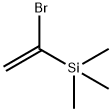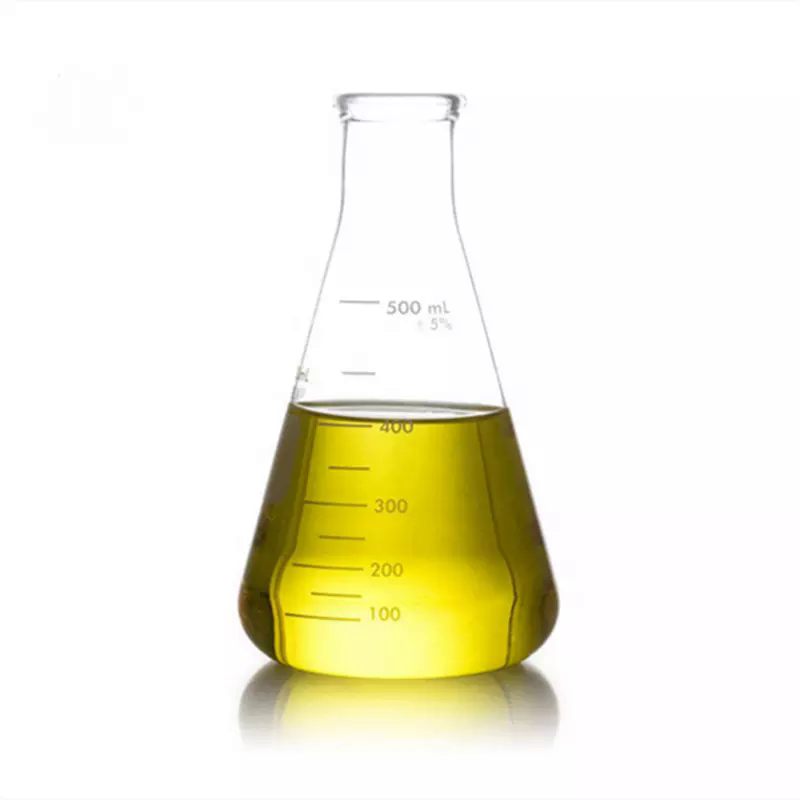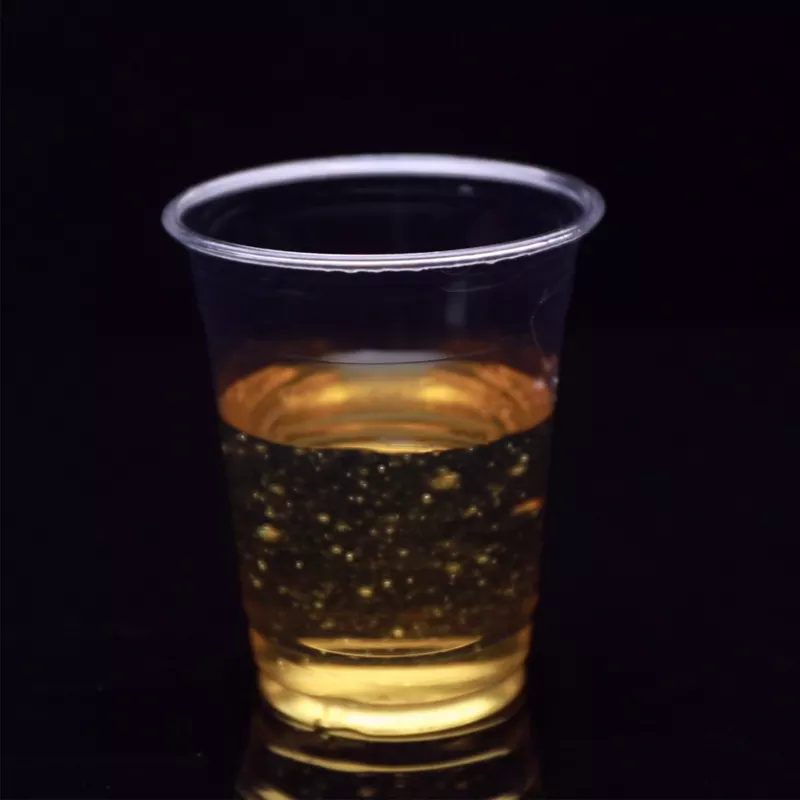(1-BROMOVINYL)TRIMETHYLSILANE
Synonym(s):α-(Trimethylsilyl)vinyl bromide
- CAS NO.:13683-41-5
- Empirical Formula: C5H11BrSi
- Molecular Weight: 179.13
- MDL number: MFCD00014927
- EINECS: 237-195-9
- SAFETY DATA SHEET (SDS)
- Update Date: 2024-03-27 13:45:20

What is (1-BROMOVINYL)TRIMETHYLSILANE?
Chemical properties
CLEAR LIGHT YELLOW LIQUID
Physical properties
bp 124°C/745 mmHg; d 1.156 g cm?3.
The Uses of (1-BROMOVINYL)TRIMETHYLSILANE
Numerous nucleophiles
react with (1-bromovinyl)trimethylsilane in the presence of
palladium complexes. The bromine has been substituted by
phenylthio,vinyl,and aryl groups. This approach gives reasonable
yields of the desired products. However, the substitution
reactions sometimes lack regiospecificity. For example, a mixture
of regioisomers was obtained in eq 6. Two mechanisms have been
proposed for the formation of the β-substituted product. One involves
an elimination step to give trimethylsilylacetylene as an
intermediate, which then undergoes catalyzed additions with the
nucleophile at either the α- or β-positions.The other mechanism
involves the formation of a pentacoordinated palladium intermediate,
leading to the formation of isomeric products.
Preparation
prepared, in good yield, from the reaction of vinyltrimethylsilane with bromine at low temperature followed by dehydrohalogenation in the presence of an amine base.Alternative syntheses and reagents, i.e. (1-bromovinyl)- triphenylsilane and (1-bromovinyl)triethylsilane, are also known.
General Description
Tetrakis(triphenylphosphine)palladium(0) catalyzed coupling reactions of (1-bromovinyl)trimethylsilane with organozinc bromides were studied.
Properties of (1-BROMOVINYL)TRIMETHYLSILANE
| Boiling point: | 124 °C745 mm Hg(lit.) |
| Density | 1.156 g/mL at 25 °C(lit.) |
| vapor density | >1 (vs air) |
| refractive index | n |
| Flash point: | 49 °F |
| storage temp. | 2-8°C |
| solubility | completely miscible with THF and Et2O. |
| form | clear liquid |
| Specific Gravity | 1.163 |
| color | Colorless to Light yellow to Light orange |
| Hydrolytic Sensitivity | 4: no reaction with water under neutral conditions |
| BRN | 1742258 |
| CAS DataBase Reference | 13683-41-5(CAS DataBase Reference) |
Safety information for (1-BROMOVINYL)TRIMETHYLSILANE
| Signal word | Danger |
| Pictogram(s) |
 Flame Flammables GHS02 |
| GHS Hazard Statements |
H225:Flammable liquids |
| Precautionary Statement Codes |
P210:Keep away from heat/sparks/open flames/hot surfaces. — No smoking. |
Computed Descriptors for (1-BROMOVINYL)TRIMETHYLSILANE
New Products
4-AMINO-TETRAHYDRO-PYRAN-4-CARBOXYLIC ACID HCL 4-(Dimethylamino)tetrahydro-2H-pyran-4-carbonitrile 4-AMINO-TETRAHYDRO-PYRAN-4-CARBOXYLIC ACID 4-Aminotetrahydropyran-4-carbonitrile Hydrochloride (R)-3-Aminobutanenitrile Hydrochloride 5-Bromo-2-nitropyridine Nimesulide BP Aceclofenac IP/BP/EP Diclofenac Sodium IP/BP/EP/USP Mefenamic Acid IP/BP/EP/USP Ornidazole IP Diclofenac Potassium 3-Bromopyrazole (3aR,4R,5R,6aS)-hexahydro-5-Triethyl silyloxy-4-((E)-3-oxo-5-phenylpent-1- enyl)cyclopenta[b]furan-2-one. 1-Chlorocarbonyl-4-piperidinopiperidine 1-Bromo-4-phenyl-2-Butanone 4-Amino-2-fluoro-N-methylbenzamide 1,1'-Carbonyldiimidazole SODIUM AAS SOLUTION ZINC AAS SOLUTION BUFFER SOLUTION PH 10.0(BORATE) GOOCH CRUCIBLE SINTERED AQUANIL 5 BERYLLIUM AAS SOLUTIONRelated products of tetrahydrofuran








You may like
-
 13683-41-5 (1-Bromovinyl) trimethylsilane 98%View Details
13683-41-5 (1-Bromovinyl) trimethylsilane 98%View Details
13683-41-5 -
 13683-41-5 98%View Details
13683-41-5 98%View Details
13683-41-5 -
 (1-Bromovinyl)trimethylsilane CAS 13683-41-5View Details
(1-Bromovinyl)trimethylsilane CAS 13683-41-5View Details
13683-41-5 -
 (1-Bromovinyl)trimethylsilane CAS 13683-41-5View Details
(1-Bromovinyl)trimethylsilane CAS 13683-41-5View Details
13683-41-5 -
![Dimethyl [2-oxo-3-[3-(trifluoromethyl)phenoxy]propyl]phosphonate 99%](https://img.chemicalbook.in//Content/image/CP5.jpg) Dimethyl [2-oxo-3-[3-(trifluoromethyl)phenoxy]propyl]phosphonate 99%View Details
Dimethyl [2-oxo-3-[3-(trifluoromethyl)phenoxy]propyl]phosphonate 99%View Details
54094-19-8 -
 85-81-4 99%View Details
85-81-4 99%View Details
85-81-4 -
![208111-98-2 (3aR,4R,5R,6aS)-5-(Benzoyloxy)hexahydro-4-[(1E)-3-oxo-4-[3-(trifluoromethyl)phenoxy]-1-buten- 1-yl]-2H-cyclopenta[b]furan-2-one 99%](https://img.chemicalbook.in//Content/image/CP5.jpg) 208111-98-2 (3aR,4R,5R,6aS)-5-(Benzoyloxy)hexahydro-4-[(1E)-3-oxo-4-[3-(trifluoromethyl)phenoxy]-1-buten- 1-yl]-2H-cyclopenta[b]furan-2-one 99%View Details
208111-98-2 (3aR,4R,5R,6aS)-5-(Benzoyloxy)hexahydro-4-[(1E)-3-oxo-4-[3-(trifluoromethyl)phenoxy]-1-buten- 1-yl]-2H-cyclopenta[b]furan-2-one 99%View Details
208111-98-2 -
 Meldrums acid 2033-24-1 99%View Details
Meldrums acid 2033-24-1 99%View Details
2033-24-1